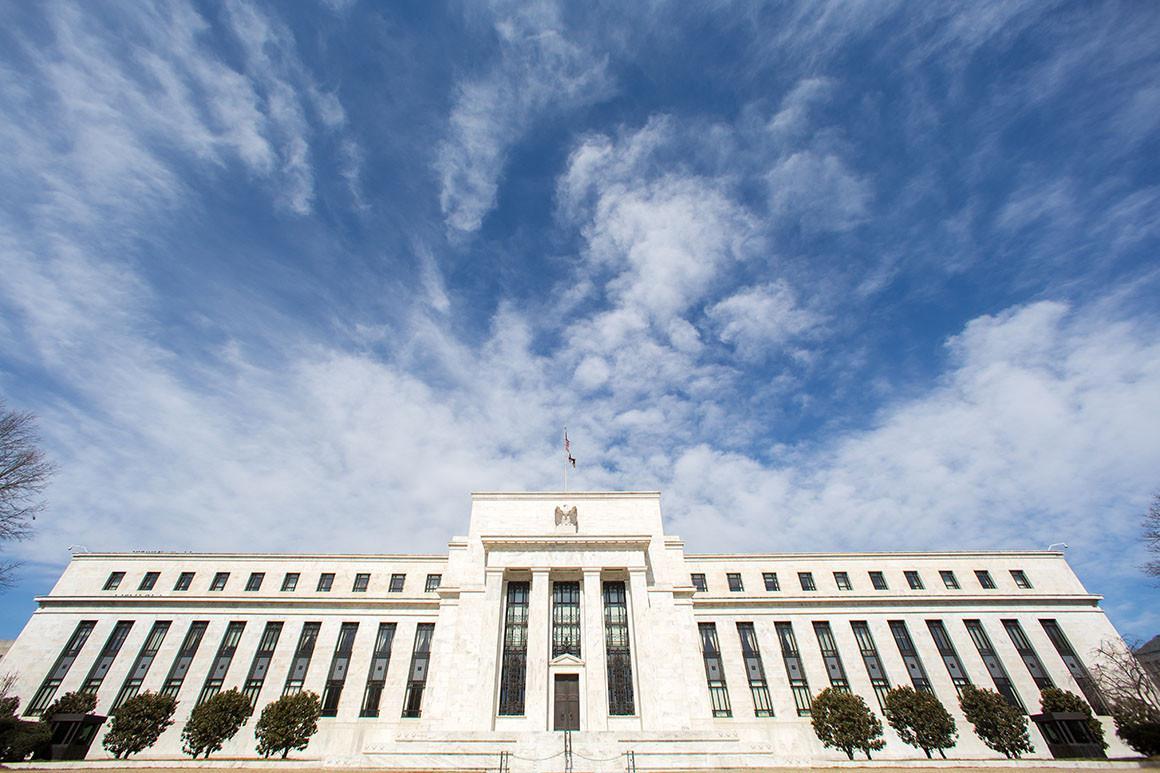The U.S. mortgage finance system could collapse if the Federal Reserve doesn’t step in with emergency loans to offset a coming wave of missed payments from borrowers crippled by the coronavirus pandemic.

The Federal Reserve building. | J. David Ake/AP Photo
Congress did not include relief for the mortgage industry in its $2 trillion rescue package — even as lawmakers required mortgage companies to allow homeowners up to a year’s delay in making payments on federally backed loans.
When individuals stop making payments on their home mortgages, the companies that handle the loans and process those payments, so-called mortgage servicers, are still on the hook: They’re legally obligated to keep sending money to insurers and investors in mortgage-backed securities, the giant bundles of home loans that are packaged and sold on the securities markets.
Now industry executives and regulators are worried that Congress’s generosity toward homeowners could wipe out those companies, causing investors not to get paid and potentially bankrupting the entire mortgage finance system — a domino effect that would make it much harder for borrowers to access credit to buy homes.
Housing lobbyists sounded the alarm to Senate staff about the potential danger, but the sheer scale of the rescue bill and the focus on communicating the industry’s other big concerns — such as the details of how long mortgages would be suspended — meant their warnings were unheeded in the rush to finish the massive legislation.
Yet while the final bill allocates $454 billion for the Treasury Department to support the Federal Reserve’s emergency lending programs, including for large corporations, there is no overt requirement for lending to mortgage companies, despite a weeklong lobbying push by the industry.
“There was a strong desire on the part of housing lobbyists to have the bill explicitly direct the Fed and Treasury to use some of that money to finance servicing advances,” said Michael Bright, CEO of the Structured Finance Association, which represents 370 financial institutions in the bond market.
Now industry lobbyists are turning their efforts to Trump administration officials.
“We have been in constant contact with many parts of the administration to ensure that they understand the urgency of this liquidity facility being set up,” said Bob Broeksmit, president and CEO of the Mortgage Bankers Association, a trade group.
On Thursday, Treasury Secretary Steven Mnuchin said the Financial Stability Oversight Council — a powerful interagency body that consists of the top financial regulators — is “particularly focused on the liquidity issues that market may have.” Mnuchin said he was establishing a task force to report back to the council on the matter on Monday.
Concerns about liquidity in the mortgage finance system have been building for years, as the companies that service mortgage loans are increasingly nonbanks — which don’t have banks’ access to Fed loans or their strict capital requirements and deposits to fall back on. Banks, which once dominated the business, have steadily pulled back since the 2008 housing market meltdown.
